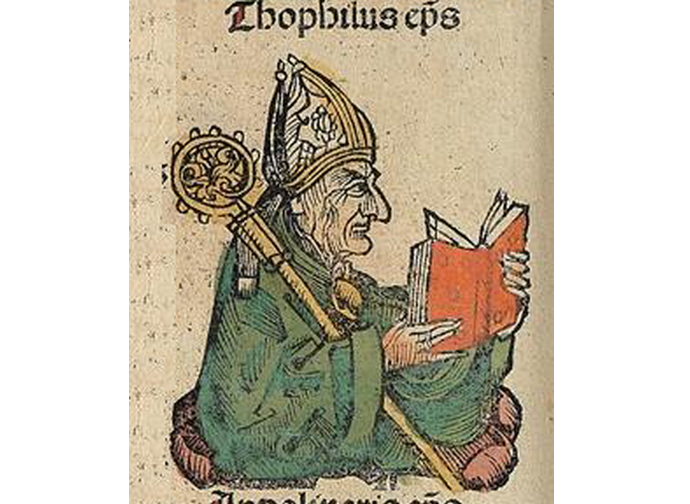St Theophilus of Antioch
He was brought up as a pagan, but a thorough reading of the Holy Scriptures encouraged his conversion. He made a great contribution to Christian apologetics.

St Theophilus of Antioch (c. 120-185) was brought up as a pagan, but a thorough reading of the Holy Scriptures encouraged his conversion. He made a great contribution to Christian apologetics. Of his numerous writings, referred to by Eusebius of Caesarea and St Jerome (who included Theophilus in his On Illustrious Men), we have received the three books To Autolycus. These are dedicated to a pagan friend who denigrated the Christian faith and to whom Theophilus explained how God was knowable by reason from all that He created. “Just as the soul of man is not visible, escaping human sight, but is perceived by observing the movements of the body, so God too cannot be seen with human eyes, but is seen and understood through His Providence and His works”.
In an original style rich in similes, Theophilus argues clearly how sin embedded in the heart prevents man from understanding God: “Man must keep his soul pure like a clear mirror. When rust settles on a mirror, the image of man cannot be reflected in it; thus, when sin takes root in man's soul, he cannot have the vision of God”. The second book dedicated to his friend Autolycus is the oldest book that has come down to us in which the term Trinity appears, which Theophilus defines as “God, His Word and Wisdom” and sees an image of Him already in the account of the first three days of Creation. Some of his insights into the Trinitarian mystery were then taken up and developed by other Christian authors, while other, vaguer ones, were not followed up.
In 169 he became bishop of Antioch, whose Church had been founded by St Peter. He was zealous in fighting heresies. Eusebius informs us that St Theophilus wrote a treatise against the heresy of Hermogenes and “an eminent work” against Marcion. The latter was a heretic who produced a doctrine that needed to eliminate the whole of the Old Testament and to cut out the many passages of the New Testament that proved the link between the two Testaments and which, therefore, did not fit in with his ideas. A heresy that has undergone various mutations over the centuries, without ever disappearing.
